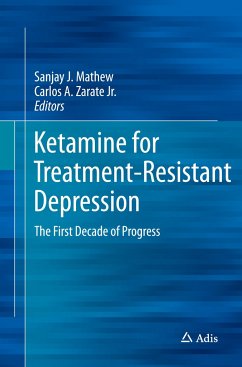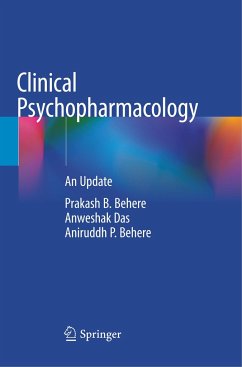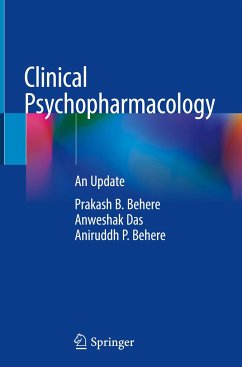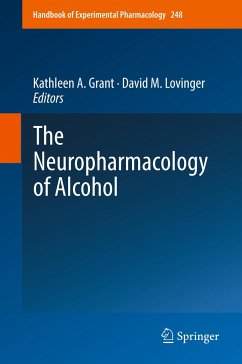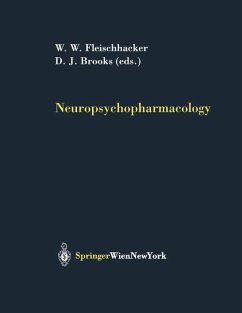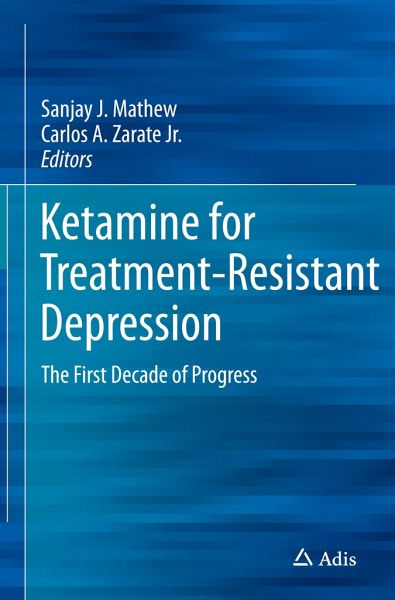
Ketamine for Treatment-Resistant Depression
The First Decade of Progress
Herausgegeben: Mathew, Sanjay J.; Zarate Jr., Carlos A.

PAYBACK Punkte
42 °P sammeln!
This book brings together an international group of clinicians and researchers from a broad swath of inter-related disciplines to offer the most up-to-date information about clinical and preclinical research into ketamine and second-generation "ketamine-like" fast-acting antidepressants.Currently available antidepressant medications act through monoaminergic systems, are ineffective for many individuals suffering from depression, and are associated with a delayed onset of peak efficacy of several months. The unexpected emergence of ketamine, an anesthetic N-methyl-D-aspartate (NMDA) receptor a...
This book brings together an international group of clinicians and researchers from a broad swath of inter-related disciplines to offer the most up-to-date information about clinical and preclinical research into ketamine and second-generation "ketamine-like" fast-acting antidepressants.
Currently available antidepressant medications act through monoaminergic systems, are ineffective for many individuals suffering from depression, and are associated with a delayed onset of peak efficacy of several months. The unexpected emergence of ketamine, an anesthetic N-methyl-D-aspartate (NMDA) receptor antagonist, as a rapid-acting antidepressant has reinvigorated CNS drug discovery research and catalyzed investigation in patient populations historically ignored in antidepressant drug development programs, particularly treatment-resistant patients and those with suicidality. Recent industry and academic research efforts have coalesced to explore NMDA receptor and glutamatergic moleculartargets that lack ketamine's psychotomimetic side effects and abuse liability but retain its rapid onset of efficacy. However, many fundamental questions remain regarding the neurobiological mechanisms underlying ketamine's rapid antidepressant effects and the puzzling persistence of benefits observed in some patients following a single dose.
This book examines how insights from these studies are forging new conceptual models of the neurobiology of stress-related affective, anxiety, and addictive disorders and the nature of treatment resistance. It also discusses how ketamine's rapid antidepressant effects provide a scientific platform to facilitate innovation in clinical trial designs pertaining to patient selection, choice of control group, outcome measures, and dose-optimization. This book brings together data and insights from this rapidly expanding and extraordinarily promising field of study. Readers will be able to extract integrated themes and useful insights from the material contained in these diverse chapters and appreciate the paradigm-shifting contributions of ketamine to modern psychiatry and clinical neuroscience research.
Currently available antidepressant medications act through monoaminergic systems, are ineffective for many individuals suffering from depression, and are associated with a delayed onset of peak efficacy of several months. The unexpected emergence of ketamine, an anesthetic N-methyl-D-aspartate (NMDA) receptor antagonist, as a rapid-acting antidepressant has reinvigorated CNS drug discovery research and catalyzed investigation in patient populations historically ignored in antidepressant drug development programs, particularly treatment-resistant patients and those with suicidality. Recent industry and academic research efforts have coalesced to explore NMDA receptor and glutamatergic moleculartargets that lack ketamine's psychotomimetic side effects and abuse liability but retain its rapid onset of efficacy. However, many fundamental questions remain regarding the neurobiological mechanisms underlying ketamine's rapid antidepressant effects and the puzzling persistence of benefits observed in some patients following a single dose.
This book examines how insights from these studies are forging new conceptual models of the neurobiology of stress-related affective, anxiety, and addictive disorders and the nature of treatment resistance. It also discusses how ketamine's rapid antidepressant effects provide a scientific platform to facilitate innovation in clinical trial designs pertaining to patient selection, choice of control group, outcome measures, and dose-optimization. This book brings together data and insights from this rapidly expanding and extraordinarily promising field of study. Readers will be able to extract integrated themes and useful insights from the material contained in these diverse chapters and appreciate the paradigm-shifting contributions of ketamine to modern psychiatry and clinical neuroscience research.



